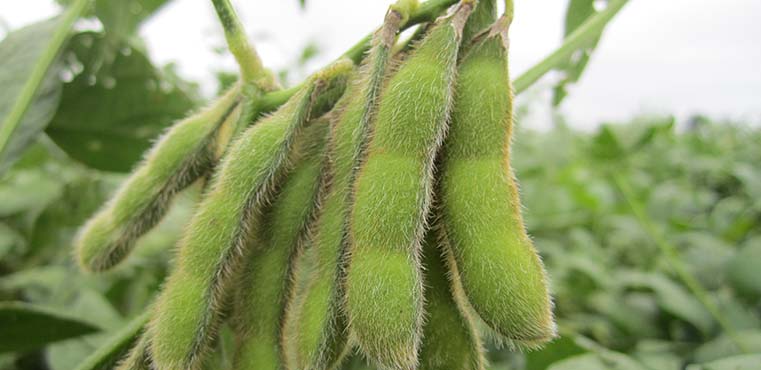Should I Avoid Soy?
 This question gets asked frequently in my nutrition classes especially from women that have/had estrogen driven cancers. I thought it would be helpful to share some of the more recent information that I’ve encountered that might help answer that question for you.
This question gets asked frequently in my nutrition classes especially from women that have/had estrogen driven cancers. I thought it would be helpful to share some of the more recent information that I’ve encountered that might help answer that question for you.
Several foods that regularly make an appearance on a whole foods plant-strong diet contain phytoestrogens which are plant versions of the human hormone estrogen. These compounds are considered weak with an average of about 2% the strength of human estrogens. When these compounds are metabolized they bind on the same cellular sites as do our estrogens, altering estrogenic effects. The three main classes of phytoestrogens are isoflavones, lignans and coumestans. Phytoestrogens can be found in soybeans, flax seeds, oats, rye, lentils, fennel, chickpeas and sesame seeds.
Contrary to what most of us has been lead to believe, soy foods and the isoflavone phytoestrogens they contain, have been shown in many studies to actually be potent anti-cancer compounds. In fact in many Asian countries where soy intake is a main part of the diet, the incidence of most cancers is lower than in populations that don’t consume soy. Despite this data, however, many women have been told to avoid soy if they have a history of estrogen receptor positive (ER+) breast cancer. They’re told that because phytoestrogens bind to estrogen receptors, the growth of their estrogen-dependent cancers will thereby be accelerated. However, and this is where it gets interesting, there are two major types of estrogen receptors, sub-type alpha and sub-type beta. Soy prefers to bind to the sub-type beta receptor which when activated, actually inhibits the cancer growth-promoting sub-type alpha estrogen receptor.
I realize that this information may seem puzzling to you, but it might give you peace of mind to know that there have been four large epidemiological clinical trials conducted with women having a history of breast cancer. Over 3,000 women with early stage breast cancer were followed for approximately 7 years. The association between their soy intake and breast cancer recurrence and/or death was tracked. The study found that those women who consumed more than 23 mg of soy/day (roughly the equivalent of one glass of soy milk or ½ cup of tofu), decreased their risk of recurrence by 15% and decreased their risk of dying from breast cancer by 17%.
Personally I’m not a huge consumer of soy, but at the same time I don’t go out of my way to steer clear of it either. In fact I have a few tempeh recipes that I really enjoy. I do want to emphasize though that the type of soy you consume is important. I recommend that you choose organic, non-GMO forms of soy as well as fermented soy products such as tempeh (fermented whole soy beans) or miso (fermented soy paste). I would also recommend that you not exceed 75 mg/day. I highly encourage you to stick with whole food forms of soy and to avoid the faux meats/sausages (they’re extremely processed), as well as the soy protein isolates found in snack bars or powders. They lack the beneficial isoflavones found in whole soy foods. So please - Read, read, read your labels!!
If you’ve never been a soy lover there’s no reason to try to become one, but for those of you who were told you needed to remove it from you diet because of your cancer, my hope is that this article has helped relieve some of the fear you may have developed about soy.
References:
The Definitive Guide to Thriving After Cancer – Lise Alschuler ND, and Carolyn Gazella American Journal of Nutrition 96(1):123-32 Making Sense of Women’s Health – Martha Schauch ND, BSc

